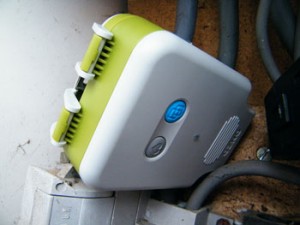Smart meter hacking costs millions per year?
 The FBI has warned that smart grid hacking is losing energy companies millions every year.
The FBI has warned that smart grid hacking is losing energy companies millions every year.Does it take sophisticated hacking in order to reduce an energy bill? Apparently not. Whereas old meters were known to be hacked by fiddling with the wiring, smart meters that are being more readily installed across the globe takes only a magnet or two.
The Federal Bureau of Investigation (FBI) has seen a surge in ‘smart meter hacks’ which allow consumers to cut expensive power bills from 50 to 75 percent — providing they’re careful about it.
It doesn’t take knowing someone in the industry or power tools — instead, consumers use a low-cost magnet to disrupt readings. Due to the digital nature of smart meters, there have also been cases of hackers being hired to cheat the system for a modest fee.
According to an FBI cyber intelligence bulletin posted on Krebs, this kind of fraud may end up costing utility companies approximately $400 million per year — perhaps more as the smart meter rollout continues.
Magnet hacking is currently the most ‘popular’ method. Magnets are removed during daylight hours in case a technician appears to inspect the smart meter. In relation to this, the bulletin states:
“This method is being used by some customers to disable the meter at night when air-conditioning units are operational. The magnets are removed during working hours when the customer is not home, and the meter might be inspected by a technician from the power company.”
Krebs says the notice was issued after research was completed in Puerto Rico that assessed these high estimations of cost due to consumer fraud. It is perhaps due to the ease of sabotaging a smart meter that the FBI are now involved; as the bulletin notes that:
“The FBI assesses with medium confidence that as Smart Grid use continues to spread [..] this type of fraud will also spread because of the ease of intrusion and the economic benefit to both the hacker and the electric customer.”
With low-cost tools or software available online, anyone with limited knowledge of software and a strong desire to grab free electricity can compromise a smart meter system. Its security has been a cause for concern over several years, and for some, has been a catalyst for anti smart meter movements.
If it is easy for the average individual to hack, then privacy concerns are also an issue in terms of external, unauthorized parties accessing consumer data.
You can return to the main Market News page, or press the Back button on your browser.

